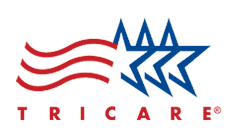Integrated Outpatient Programs for Mental Health and Substance Use Recovery
Many people struggling with addiction also experience mental health conditions like anxiety, depression, trauma, or bipolar disorder. These challenges don’t occur in isolation—they influence and reinforce each other. That’s why Lanier Recovery Center offers co-occurring disorder treatment in Atlanta through integrated outpatient care.
Our clinical team takes a comprehensive approach, treating both the substance use disorder and the underlying or coexisting mental health condition. Through our Partial Hospitalization Program (PHP), Intensive Outpatient Program (IOP), and standard outpatient care (OP), we provide structure, support, and tailored therapies that address the full scope of what you’re experiencing.
What Are Co-Occurring Disorders?
Co-occurring disorders—also called dual diagnosis—refer to the presence of both a mental health disorder and a substance use disorder at the same time. This is more common than many people realize. According to the National Institute on Drug Abuse, about 50% of people with a substance use disorder also have a mental health disorder.
Common combinations include:
-
Alcohol use and depression
-
Anxiety and benzodiazepine misuse
-
PTSD and opioid addiction
-
Bipolar disorder and stimulant use
-
ADHD and cannabis dependency
When untreated, each disorder can make the other worse. For example, using substances to self-medicate symptoms of trauma or anxiety can lead to dependency—while addiction itself can worsen mood instability and isolation. Without integrated care, treatment often fails to address the full picture.
Daily Challenges of Living with Co-Occurring Disorders
Living with both a substance use disorder and a mental health condition can make even basic tasks feel overwhelming. These disorders often feed off one another, creating a cycle that’s difficult to escape without professional intervention.
Here are some real-world examples of what that looks like:
-
Using alcohol or drugs to cope with panic attacks or depressive thoughts
-
Struggling to stay in treatment because of severe mood swings or low motivation
-
Relapsing when mental health symptoms resurface
-
Feeling ashamed, misunderstood, or judged by providers who only treat one issue
-
Missing work, falling behind on bills, or pulling away from relationships due to emotional or physical instability
-
Feeling like “no one gets it” because providers or loved ones don’t understand the dual nature of your experience
At Lanier Recovery Center, we see the full person. We address not just the addiction, but the emotional and psychological struggles that lie beneath it.
How We Treat Co-Occurring Disorders at Lanier Recovery Center
True recovery begins when both disorders are treated together. That’s why we create personalized, integrated treatment plans that take into account your full history, needs, and goals.
Our dual diagnosis treatment includes:
-
Comprehensive Diagnostic Assessments: We assess both substance use and mental health symptoms to build an accurate and actionable diagnosis.
-
Evidence-Based Therapies:
-
Cognitive Behavioral Therapy (CBT) to target unhelpful thoughts that contribute to both substance use and emotional distress
-
Dialectical Behavior Therapy (DBT) for emotional regulation and crisis prevention
-
Trauma-Informed Therapy to help heal unresolved trauma that may drive both conditions
-
Motivational Interviewing (MI) to strengthen internal motivation for change
-
-
Medication Management (when needed): For clients with depression, anxiety, bipolar disorder, or other psychiatric symptoms
-
Individual Therapy: To explore root causes, develop insight, and establish new patterns
-
Group Therapy: For support, skill-building, and shared accountability
-
Psychoeducation: Understand the relationship between substance use and mental health so you can build awareness and relapse prevention strategies
-
Family Therapy and Support: Educating and supporting families can strengthen long-term recovery outcomes
Levels of Care for Co-Occurring Disorders
We offer flexible outpatient treatment through three levels of care:
Partial Hospitalization Program (PHP)
Our most intensive outpatient program, PHP meets 5 days per week. Ideal for those who need structure, clinical support, and a step between inpatient and independent living.
Intensive Outpatient Program (IOP)
Provides structured treatment several days a week while allowing clients to maintain work or school obligations. IOP is appropriate for individuals with moderate needs who are ready for increased independence.
Outpatient Program (OP)
Offers lower frequency support, typically for clients stepping down from higher levels of care or maintaining long-term recovery goals.
Each level of care includes both clinical treatment and case management services to support housing, employment, and aftercare planning.
Why Choose Lanier Recovery Center?
-
We Treat the Whole Person: Our integrated model doesn’t separate your mental health from your recovery—it treats them as interconnected.
-
Experienced Clinical Team: We have decades of combined experience in treating dual diagnosis clients with complex needs.
-
Customized, Ethical Care: Your treatment plan is designed for you—not a one-size-fits-all approach.
-
Trauma-Informed and Compassionate: We understand the role of trauma, shame, and past treatment failure. Our care is grounded in empathy and respect.
-
Community-Focused: You’ll find support, accountability, and belonging in our programs.
Frequently Asked Questions
Do co-occurring disorders require specialized treatment?
Yes. Without integrated care, treatment can miss key pieces—like addressing depression while ignoring the drinking that sustains it. We treat both at once.
Can I attend outpatient treatment for co-occurring disorders?
Yes. Our PHP, IOP, and OP programs are specifically designed for dual diagnosis clients who don’t need 24-hour supervision but do need consistent, structured care.
Is medication required?
Not always. Some clients benefit from psychiatric medication, while others focus solely on therapy. We’ll create a plan based on your needs and preferences.
How common is dual diagnosis?
Very common. Nearly half of those with substance use disorders also live with a co-occurring mental health condition.
Will my therapist understand both issues?
Yes. Our therapists are trained in both mental health and addiction recovery. You won’t have to explain why one affects the other—we already understand.
Begin Treatment for Co-Occurring Disorders in Atlanta
At Lanier Recovery Center, we know that true healing means treating the mind and the body together. If you’re struggling with substance use and mental health symptoms, our dual diagnosis treatment programs offer a path forward—with clarity, compassion, and expert support.
Contact us today to learn more about co-occurring disorders treatment in Atlanta or to schedule a confidential assessment.










